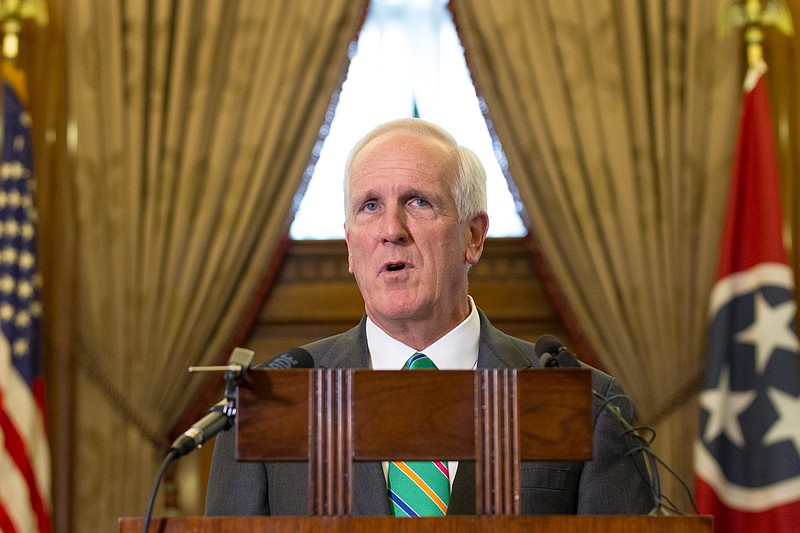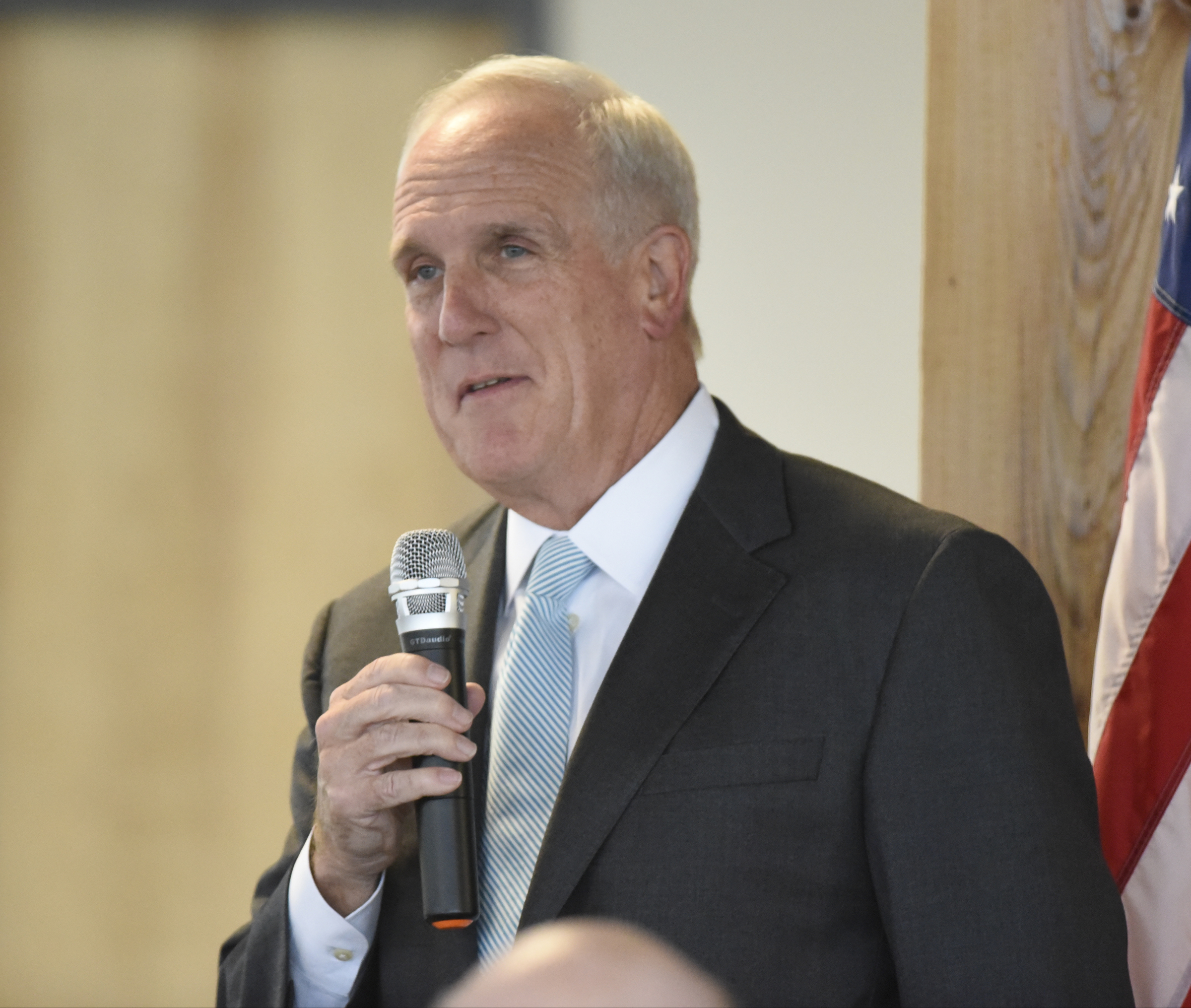Tennessee Attorney General Herbert Slatery on Monday called the U.S. Supreme Court's gay marriage decision an issue for the states, saying in a speech in Chattanooga that a handful of federal decrees have pre-empted the "very good, well-run" systems in Tennessee.
"It seems like we deal with it every time we turn the corner," Slatery said to roughly 50 members of the Pachyderm Club. "This is a states' issue. This shouldn't be a federal issue."
Slatery, who originally expressed disappointment with the decision before encouraging people to be patient, praised Tennessee for its strong, low-tax legislation and debt-free highways before lauding Chattanooga for its development.
"Congratulations," he said. "It seems like everything is growing here."
During the hour-long speech, Slatery encouraged the members to pay attention to the 2016 elections - and the Supreme Court, since several of its sitting judges are of advanced years.
In regard to the candidates, he urged that people analyze their experience: "What have they done? Have they made policy decisions that have affected lots and lots of people?"
He also mentioned the government's work on immigration - "another piece where federal comes and says, 'Here's the law'" - noting that it increases driver's license fees.
"I thought it was very interesting," Pachyderm member Scott McColpin said of the speech. "The biggest benefit is for members to meet and hear about everyone's ideas."
After the meeting, Slatery fielded a few questions from reporters.
He addressed divorce and parenting forms, which the Administrative Office of the Courts changed over the summer to reflect gay marriages only to revert to the original language after a public outcry.
He was asked if he thought there would be any change to the forms.
"[The Supreme Court] in all likelihood is looking at these issues," he said, adding that the Administrative Office of the Courts works under the auspices of the nation's highest court.
A reporter also asked Slatery about debtor prisoners, or people with low incomes who are incarcerated for being unable to pay their court fines. A civil rights lawyer in Washington, D.C., recently sued Rutherford County, Tenn., and the private company it contracts with to collect such debts. The Tennessee Bar Association also published an article on the issue in July, urging lawmakers to use already existing legislation to combat the problem.
"It seems sort of remote, to be honest," Slatery said.
Contact Zack Peterson at zpeterson @timesfreepress.com or 423-757-6347. Follow @zackpeterson918.

